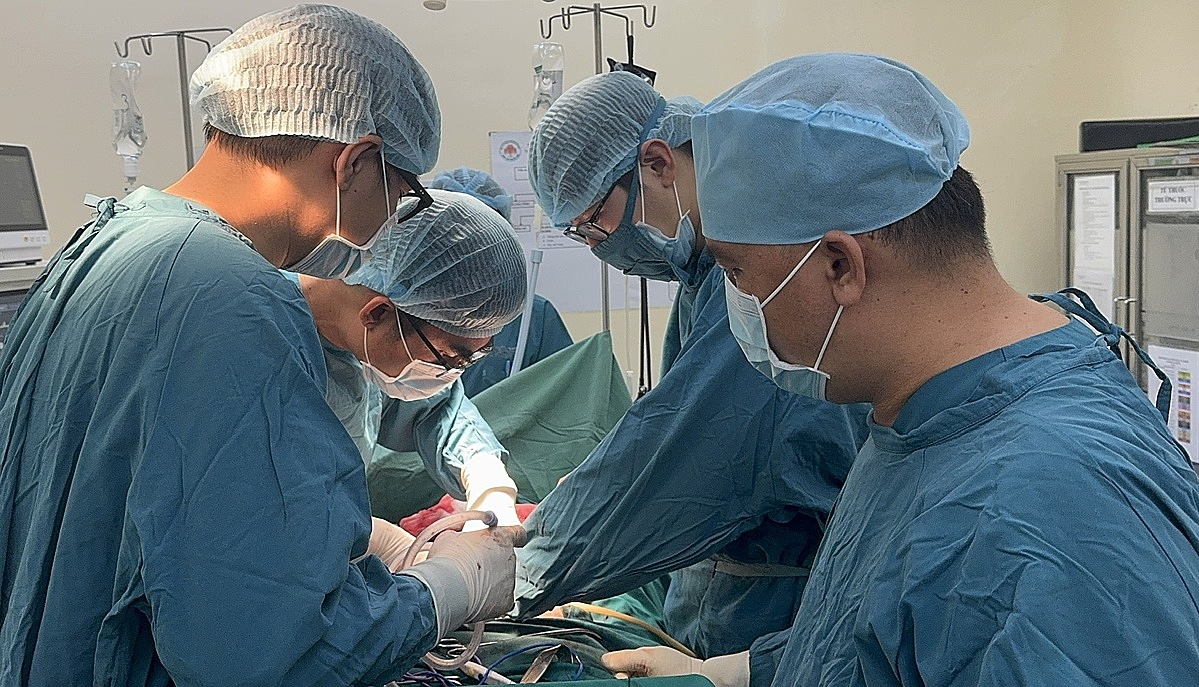On 15/8, Dr. Vo Duy Tam, from the Department of Urology at Nguyen Trai Hospital, reported that the patient received a 7-day course of antibiotics. This treatment reduced the swelling and pain in his left testicle, but he continued to experience difficulty urinating, straining to urinate, and a feeling of incomplete emptying. The patient had a history of chest trauma from a stabbing 3 years prior, which required a suprapubic catheter due to the inability to insert a urethral catheter.
Doctors conducted clinical tests and determined the patient had a 4-5 cm long urethral stricture requiring reconstructive surgery. Dr. Phan Lien Khuong, Dr. Tam, and their team performed the surgery, grafting a piece of oral mucosa from the patient's cheek onto the urethra. Three weeks later, the patient reported improved urination with a strong stream.
 |
Doctors performing the surgery. Photo: Hospital provided |
Doctors performing the surgery. Photo: Hospital provided
Urethral stricture is a complex and challenging medical condition to treat. Treatment options depend on the location and length of the stricture. For long strictures where end-to-end anastomosis is not possible, reconstructive surgery using an autologous graft offers several advantages.
According to medical literature, urethral reconstruction using an oral mucosa graft has a high success rate of 82-89%. This technique involves multiple steps, requiring meticulous precision and thorough post-operative care to prevent complications.
Dr. Tam explained that urethral strictures can result from various causes, including congenital factors, autoimmune diseases, trauma, urethritis, or medical interventions. The common consequence is difficulty urinating and other urinary disorders. In this particular case, the stricture may have been congenital or due to long-term urethral damage, given the patient's history of urethritis and infection.
Dr. Tam cautioned against neglecting symptoms of difficulty urinating, as they can lead to complete bladder dysfunction, affecting urinary tract activity and potentially causing kidney failure. He recommended seeking medical attention for examination and screening for urethral stricture if experiencing urinary disorders, particularly obstructive symptoms such as straining to urinate, prolonged urination, weak urinary stream, and incomplete emptying.
Individuals with risk factors such as a history of urethritis, genital trauma, or previous medical interventions like endoscopic urological surgery or urethral catheterization should be especially vigilant.
Le Phuong












